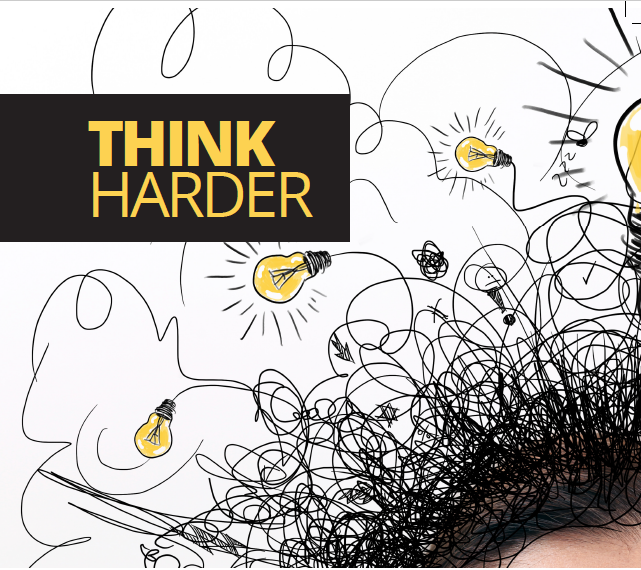If ‘work hard’ is your daily mantra, critical thinking may offer the key to greater success. Author Cathy Lasher explains why
Deliberate thinking, reflecting on what you have done, what you are doing, what you want to do, is an essential leadership skill that you cannot afford to be without. It underpins virtually every one of the tasks you have to do. Thinking is today’s main business task, particularly if you are at middle management level or above.
In recent months and years, books, articles and blogs on ‘critical thinking’have focused on thinking about an experience in an organised and structured way. This enables us to understand beyond the most obvious layer, in order to act with clarity, excellence and precision. In other words, focused, reflective thinking.
Why is there this relatively new emphasis on critical thinking? The demands of the workplace are changing. There is greater focus on knowledge management and on thinking. Years ago, the main focus of work was physical labour, but the widespread introduction of mechanised processes largely replaced this. Mechanised processes have in turn been replaced by computerisation and outsourcing to the lowest cost labour markets.
Now that ‘knowledge’ is fairly universally available, the competitive advantage will come from using that knowledge better than anyone else. Always ahead of his time in his thinking about developments in business management, the sage Peter Drucker wrote in an essay in Atlantic Monthly in 1994, ‘…how well an individual, an organisation, an industry, a country, does in acquiring and applying knowledge [emphasis added] will become the key competitive factor.’
I imagine that one reason that leaders and people in some organisations (you?) are sceptical about making time for thinking is that there has necessarily and appropriately been an emphasis on action over the past few decades. Indeed, we are being asked to produce more, with fewer resources, and in less time and for more return on investment (ROI) than ever before. There is a fear that attention on thinking means taking the focus off action.
On the contrary! It is precisely the act of reflecting, of doing good thinking that enables us to take the right actions. Efforts to increase productivity have rightly meant a focus on taking action. But people don’t always think clearly about which actions to take, and that can lead to bad decisions. Doing things the same way and expecting different results is one definition of insanity.
You need to do things differently if you want to improve your results. There is a noticeable and increased emphasis on improved ROI in many organisations these days in relation to things that have never been measured before.
In my line of work I notice that increasingly organisations are demanding a way to measure the benefit obtained from coaching investment, for example. It is no longer sufficient, if it ever was, to do things ‘just because they feel good’. It isn’t hard to imagine extending this demand to increased emphasis on returns to be obtained from thinking. One way to ensure that you improve your results is to learn from what you are doing. It makes sense, both commercially and from a personal benefit perspective. Improved thinking brings improved ROI.
How could it not? And applying the five-part EDGE-it model as explained in my book, Better Thinking for Better Results to your thinking gives you the structure you need to ensure that you maximise your investment in the very act of thinking. As Henry Ford once famously said, ‘Thinking is the hardest work there is, which is probably the reason why so few engage in it.’
Differentiate yourself by being one of the ones who does engage in thinking, and make it the highest quality thinking you can.
Cathy Lasher is author of Better Thinking for Better Results, published by Panoma Press





